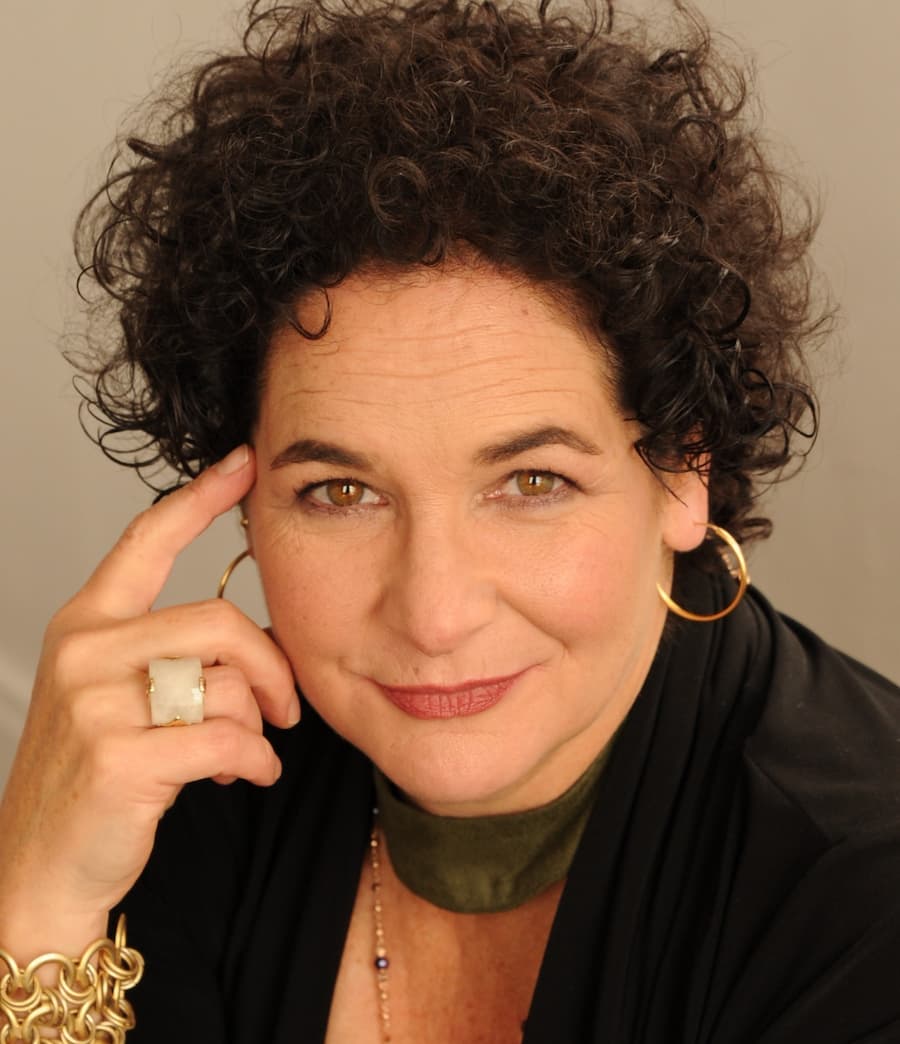Strategy
Getting Wealth Right ‚Äď So It Doesn‚Äôt Go Wrong For NextGens

The authors get into the details of how wealthy people don't become ruled by their money and lose a sense of what is important in life. The "path to fulfillment lies in embracing relational health", they write.
The following article comes from Dr Stacy Feiner ‚Äď previously published in Family Wealth Report ‚Äď and Shayla Locklear. (More on the authors below.) They write about how those with great wealth can struggle to develop a purpose in their lives. The authors look at traditional ideas concerning money, status, and achievement. The topics, while going beyond some of the usual fields for wealth management, are important for advisors to grasp so that they can gain a better understanding of what makes their clients tick and how to frame conversations. We hope this article is valuable to that end.
The usual editorial disclaimers apply to views of guest writers. To comment, email tom.burroughes@wealthbriefing.com and amanda.cheesley@clearviewpublishing.com
The existential challenge of wealth
“Willful blindness is a choice not to know what you know. It
is not ignorance, but an active decision to ignore inconvenient
truths.‚ÄĚ ‚Äď Margaret Heffernan
The silent crisis facing many of the ultra-wealthy is not financial, but existential. At the pinnacle of material abundance, a surprising form of poverty emerges: the absence of meaning. As needs and desires are fulfilled beyond imagination, what follows is often a profound sense of emptiness. This phenomenon, a kind of purpose-deprivation at the highest levels of wealth, is both quietly widespread and largely unacknowledged.
For decades, cultural conditioning has equated wealth with fulfillment. Success was defined by accumulation of assets, possessions, and status. But today, a growing number of affluent families are no longer willing to accept that equation. They are demanding a deeper, more emotionally intelligent approach to legacy, identity, and wellbeing ‚Äď one that acknowledges the real psychological and relational challenges that wealth can bring. As a result, many institutions and advisors in the high net worth space are scrambling to keep up. The old paradigms of silent suffering and private discontent are no longer sufficient. Wealth, on its own, is no longer seen as the answer. It now requires social connection, consciousness, and a new kind of stewardship rooted in human depth, not just financial strategy.
Identity whiplash
Many ultra-wealthy individuals unwittingly fall into the trap of
performative purpose-seeking, diving into philanthropy or social
ventures not from a grounded sense of self, but from an external
script of what a ‚Äúgood‚ÄĚ wealthy person should do. However, this
outward-driven approach often proves hollow.
The disconnection between financial abundance and psychological wellbeing manifests in myriad ways. Entrepreneurs who achieve enormous exits often report a surprising letdown, a kind of existential hangover. One tech founder described waking up the day after a nine-figure acquisition with an overwhelming sense that he had spent fifteen years chasing something that delivered fifteen seconds of satisfaction. Similarly, family offices struggle with legacy and succession, particularly when heirs inherit wealth without values to guide its use (Hughes, 2004).
For years ‚Äď sometimes a decade or more ‚Äď entrepreneurs/wealth creators sacrifice nearly everything to build something that carries their name, their vision, their identity. Long hours, strained relationships, deferred dreams. It‚Äôs all done in pursuit of the ultimate milestone: the acquisition. The moment when everything pays off. When the deal closes, the number stuns, the congratulations pour in. And for a brief moment, there is elation. A sense of triumph. Relief. Victory.
But what often follows is far less discussed.
The quiet. The disorientation. The startling realization that the thing you spent years constructing ‚Äď your business, your life‚Äôs work, your reason to get up in the morning ‚Äď is no longer yours. The thrill fades with unnerving speed. What once lit up your nervous system now barely registers. You thought it would feel different. You thought it would feel like freedom. Instead, it feels like displacement. Like attending a celebration that slowly begins to resemble a wake.
You are wealthy. Acclaimed, even. But internally, many describe feeling unmoored.
When the building is over and there is no longer a clear mountain to climb, the questions begin to surface: What now? Why continue striving when the biggest win of your life left you hollow? There is often a reckoning, not with failure, but with success. And with it, a sobering question: What remains when the pursuit ends, and the person you were was built entirely around the pursuit itself?
Consumption without purpose
When purpose is absent, consumption tends to escalate. The
wealthy often find themselves in a cycle of acquiring more
‚Äď homes, yachts, experiences ‚Äď but with diminishing
returns. One woman who inherited substantial wealth spent years
pursuing increasingly extravagant indulgences. She eventually
admitted that she was, in her words, “consuming my way into
depression.‚ÄĚ Her turning point came not from a new purchase, but
from a new posture: mentoring young entrepreneurs from
backgrounds similar to her own family’s origins. That engagement
evolved into a comprehensive impact investment strategy. Her
wealth grew, but more importantly, so did her sense of purpose.
This is not a unique case. It reflects a broader transformation in how people are beginning to think about wealth and identity. A new wealth literacy is emerging ‚Äď one that goes beyond financial competence to encompass emotional intelligence, purpose clarity, and legacy vision. This literacy acknowledges that wealth amplifies existing values and identities. It removes external constraints but introduces internal ones. It solves certain problems while creating new ones (Keffeler, 2018).
Unraveling the myth
Integral to this reorientation is the unraveling of the self-made
myth. For too long, wealth has been seen as a singular triumph of
individual effort. But more wealth holders are beginning to
acknowledge the systems, communities, and networks that supported
their rise. With this awareness comes a new question: If success
was enabled by others, what responsibilities does one hold toward
them? This is the moment when wealth transforms from an endpoint
into a means resource not just for personal gratification, but
for broader impact (Hughes, 2004).
The turning point in any generational legacy is when the ‚Äúme‚ÄĚ of each family member is no longer seen as a threat to the ‚Äúwe,‚ÄĚ but rather as its most vital resource (Wolkowitz, Feiner, 2024). When individuals are supported by clarifying their purpose, building their confidence, and being seen for who they are ‚Äď not just what they inherit ‚Äď they begin to show up differently. The family mission evolves from something that‚Äôs imposed to something that‚Äôs embraced. In this model, the family office becomes a launching pad, not a container. This discovery cultivates intrinsic motivation ‚Äď at the intersection of agency and purpose ‚Äďwhere one‚Äôs personal aspirations align with the family‚Äôs greater vision. The empowered ‚Äúme‚ÄĚ offers ingenuity, care, and conviction to the ‚Äúwe‚ÄĚ not because they are told to, but because they are invited to bring the best of who they are into a legacy they now feel is partly their own creation (Andreasson, Feiner, Harris, Overbeke, 2023).
New thinking
Today’s legacy-driven families face challenges that traditional
advisors are not equipped to address. A new type of advisor is
emerging ‚Äď one who integrates purpose discovery, identity
coaching, family alignment work, ethical legacy planning, and
psychological frameworks into their practice.
These advisors recognize that spreadsheets and tax strategies alone are no longer sufficient; what is required is reflection, emotional sophistication, and a reimagining of success itself. The Sixth Level (2023) model of leadership offers a framework for meeting these demands by centering relational health through the integration of the Ethic of Care.
This approach establishes essential guardrails for emotional reciprocity, ingenuity, and collective interest. It acknowledges that relational dynamics form the invisible architecture of every family enterprise and provides a pathway for shifting away from patterns of dominance, secrecy, and asymmetry. In their place, a culture of collaboration is cultivated, governed by a ‚ÄúRelational Code of Conduct‚ÄĚ that supports the emotional health of complex systems. Within such ecosystems, individual growth and collective cohesion are not opposing forces, but complementary expressions of a deeper shared purpose (Andreasson, Feiner, Harris, Overbeke, 2023).
Beyond profit to purpose
The false dichotomy between wealth and meaning is fading. The old
story told us we had to choose: profit or purpose, business or
values, accumulation or contribution. But that binary has
outlived its usefulness. The emerging view recognizes that these
forces are not in opposition; they are mutually reinforcing
(Wallis Andreasson, Feiner, Harris, Overbeke, 2023). Addressing
real problems in the world often creates the most meaningful
opportunities and durable success. Sectors tackling climate,
health, education, and accessibility are attracting both capital
and talent because they offer both returns and relevance.
From possession to possibility
At the individual level, this convergence creates new pathways.
The integration of purpose and prosperity does not dilute either.
It elevates both. The journey from success to significance begins
by reframing wealth ‚Äď not as a final destination, but as a
powerful vehicle. One client put it best: the moment of
transformation came when he shifted from thinking “Look what I
have‚ÄĚ to ‚ÄúLook what‚Äôs possible because of what we can do
together‚ÄĚ (Tannen, 2007).
That shift ‚Äď from possession to possibility, from individual gratification to collective impact ‚Äď marks the evolution of true wealth. It moves us beyond accumulation for its own sake and toward the generative potential of money as a tool for human and social flourishing. As emphasized in the book, The Sixth Level, a new framework of leadership that includes intrinsic motivation and the ethic of care will better serve organizations and elevate humanity.
From performance to presence
True fulfillment begins with deep self-inquiry and the
realization that purpose is not a fixed role dictated by one’s
bank balance or public image; it is malleable, intensely
personal, and evolves over time with one’s own growth. As
educator Parker Palmer writes, “Our deepest calling is to grow
into our own authentic selfhood, whether or not it conforms to
some image of who we ought to be… we will also find our path of
authentic service in the world‚ÄĚ (Palmer, 2000).
In this light, wealth does not demand any particular form of output; rather, it offers an invitation to cultivate a unique, evolving expression of self, letting one’s contributions flow from an inwardly anchored sense of purpose.
Intentional transformation
Transforming the future of wealth demands more than technical
innovation, it requires a fundamental shift in worldview.
Outdated scripts rooted in dominance, control, and isolation must
give way to a relational, ethically-grounded approach centered on
mutual responsibility, emotional maturity, and long-term
stewardship.
One evening, a billionaire posed a simple yet profound question: ‚ÄúWhat would you do if you had what I have?‚ÄĚ Increasingly, legacy-driven families answer by investing in systems that support both individual growth and collective wellbeing. They cultivate purpose, align relationships, and establish the conditions for trust, transparency, and shared meaning.
This marks a redefinition of legacy. Through the ethic of care, wealth ceases to be a tool for insulation or personal gain and becomes a vehicle for deeper engagement, intergenerational cohesion, and lasting impact. Success is no longer measured by accumulation, but by what is activated in service of the whole.
What has become clear ‚Äď after this reflection and learning ‚Äď is that the path to fulfillment lies in embracing relational health. Families are now thinking differently. Finally, the fog is clearing, and families have viable solutions and new resources for the positive, lasting change they have long hoped for. The solution had been obscured by outdated paradigms and incomplete frameworks. Today, with the lens of relational health, the opportunity to transform wealth into a foundation for connection, contribution, and enduring purpose is within reach.
Money, for all its power, is a poor destination. When anchored in shared purpose, however, it becomes one of the most powerful vehicles for a meaningful, connected, and abundant life.
References
-- Andreasson, R.W., et al. (2023). The Sixth Level:
Capitalize On the Power of Women’s Psychology for Sustainable
Leadership. Amplify Publishing Group. VA
-- Hughes, J. E. Jr. (2004). Family Wealth: Keeping It
in the Family. Bloomberg Press. NY
-- Keffeler, K. (2022). The Myth of the Silver Spoon:
Navigating Family Wealth and Creating an Impactful Life.
Wiley, NJ
-- Palmer, P. J. (2000). Let Your Life Speak: Listening
for the Voice of Vocation. Jossey-Bass. NJ
-- Tannon, D. (2007). You Just Don’t Understand.
HarperCollins. NY
-- Wolkowitz, R., Feiner, S. (2024). High Performing
Family Offices: Thinking About ‚ÄėMe‚Äô As Much As ‚ÄėWe‚Äô. Family
Wealth Report, UK
About the authors
Dr Stacy Feiner, founder of Feiner Enterprises, providing advisory and coaching for enterprising families, businesses, and offices. She is a speaker and co-author of the bestseller, The Sixth Level and Talent Mindset.

Shayla Locklear, CEO of ShaylaUnlmtd, is an advisor to affluent individuals/families navigating wealth, identity, purpose, and spirituality. She is a writer and global speaker.

